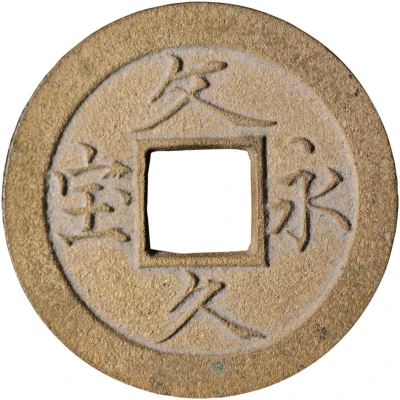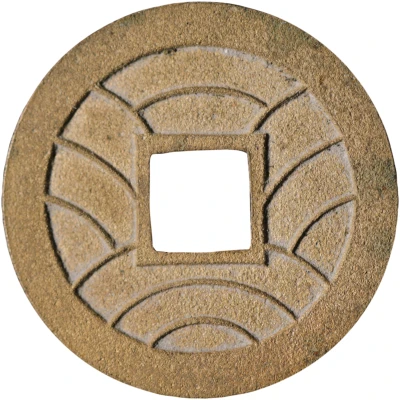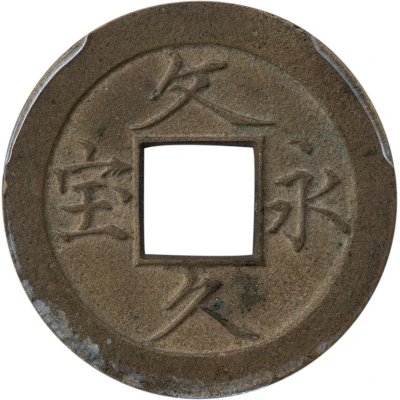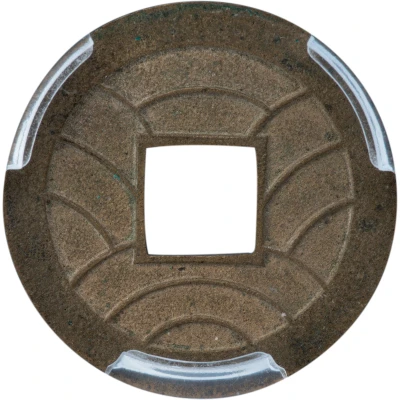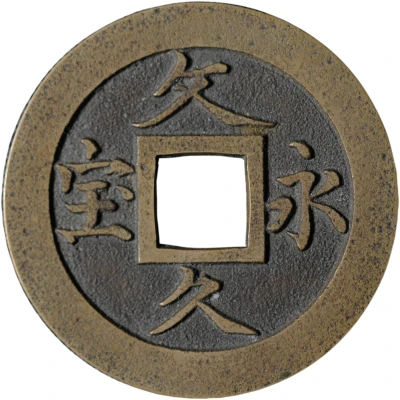
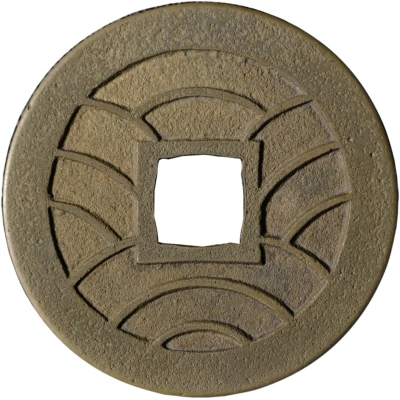

© Ginza Coins
4 Mon "Bunkyūeihō" Bosen; copper alloy; Simplified Hō; KŌKAKU ND
| Copper | - | - |
| Issuer | Japan |
|---|---|
| Type | Pattern |
| Years | 1863-1868 |
| Value | 4 Mon |
| Currency | Mon (683-1953) |
| Composition | Copper |
| Shape | Round with a square hole |
| Technique | Cast |
| Orientation | Medal alignment ↑↑ |
| Demonetized | 31 December 1953 |
| Updated | 2024-10-05 |
| Numista | N#291952 |
|---|---|
| Rarity index | 100% |
Reverse
11 waves
Interesting fact
One interesting fact about the Pattern 4 Mon "Bunkyūeihō" coin from Japan is that it was designed by a French engraver named Charles Fournier, who was hired by the Japanese government to modernize the country's currency during the Bakumatsu period. The coin features a unique blend of traditional Japanese design elements, such as the chrysanthemum crest of the Japanese emperor, and Western-style numerals and lettering. This fusion of styles reflects the cultural exchange and modernization that was taking place in Japan during this time period.
